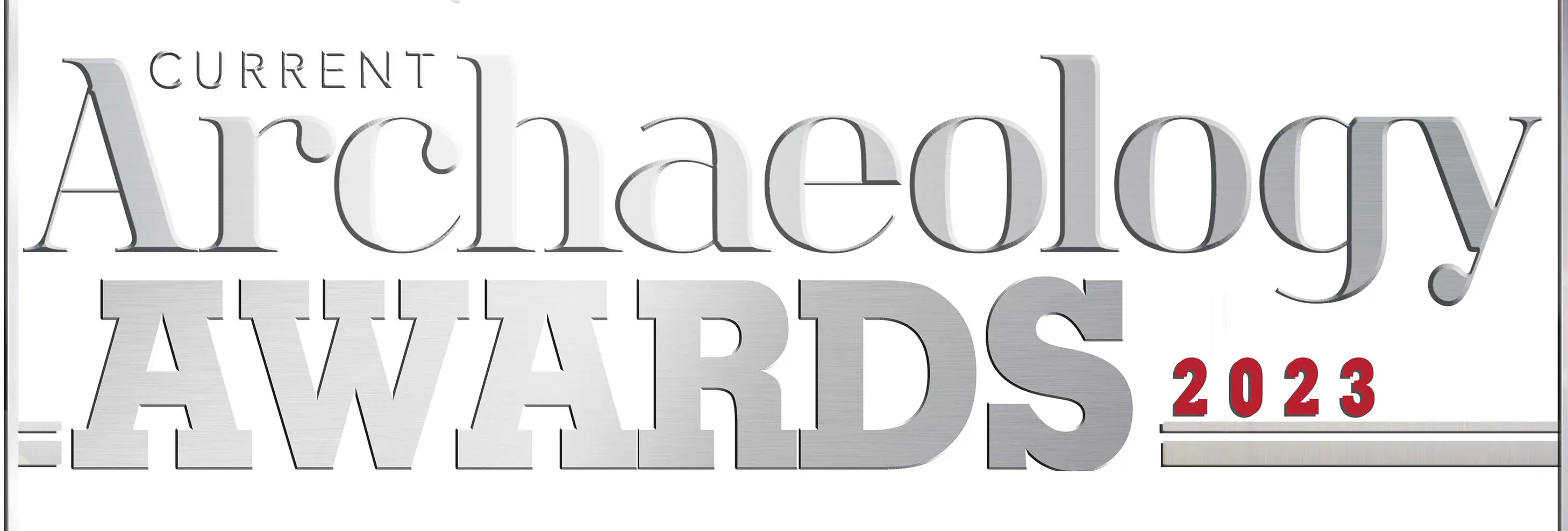Two UCLan academics have had their research projects nominated for a prestigious Current Archaeology award
Two UCLan professors are celebrating this week, after both of their research projects were nominated for the prestigious Current Archaeology Awards 2023.
Professors Vicki Cummings and Duncan Sayer are colleagues who teach in the School of Natural Sciences; Vicki specialises in Neolithic Archaeology, while Duncan focuses on the early Medieval period. Their nominations for the awards mean that UCLan occupies no less than a quarter of the Research Project of the Year category shortlist – a huge achievement for the university, and of course for Vicki and Duncan.
The awards celebrate the projects and publications that have made the pages of Current Archaeology magazine over the past 12 months. They are voted for entirely by the public – there are no panels of judges – so once voting opens, it’s over to the people to decide on the project you’d like to see win.
Ultimately, Vicki and Duncan’s research will be competing for the final prize; but – as colleagues and friends – the rivalry is very much an affable one, and they’re both rooting for each other.
Vicki’s project – ‘Designed to enchant: the great dolmens of Neolithic northern Europe’ - is the culmination of a decade of research into Neolithic monuments built northwest Europe, in particular those monuments that involve the elevation and display of a substantial stone. Through her research, Vicki showcases how these monuments – or dolmens – were built using experimental and emergent technologies to raise up the huge stones, which, once built, were a source of wonder and fascination for those who saw them. Vicki’s research was published in a book last year, which she co-authored with Professor Colin Richards from the University of Highlands and Islands Archaeology Institute, entitled ‘Monuments in the Making: Raising the Great Dolmens in Early Neolithic Northern Europe’.
Vicki Cummings, Professor of Neolithic Archaeology and UCLan’s Deputy Head (Research) of the School of Natural Sciences, said: “It’s always fantastic to have my work – particularly when it’s research that has occupied many years of my career – nominated for an award. In a world that is so focused on the future, it’s still important to find new relevance and meaning in the past – there’s so much we can learn from what’s gone before.
“That there are two nominations in the School I think says a great deal about the significance of the research that the Archaeology team here at UCLan is working on. I hope that it gives our students a real sense of being at heart of a very exciting time for archaeology at the University. And there’s lots more to come; we’ll be working on a new project in Orkney next year, which I’m looking forward to getting started on.”
"I hope that it gives our students a real sense of being at heart of a very exciting time for archaeology at the University."
— Vicki Cummings, Professor of Neolithic Archaeology at UCLan
Meanwhile, Duncan’s research project – ‘Migration matters: ground-breaking insights into early medieval England' - centres around one of the largest ever studies conducted on the early medieval population, involving the analysis of DNA from more than 460 skeletons across 37 archaeological sites. The findings, published in Nature, challenge our perceptions and understanding of ancient England, after revealing that about 76 per cent of the ancestry in early medieval English populations originated from what is today northern Germany and southern Scandinavia - providing strong evidence for mass migration into the British Isles after the end of Roman occupation, and all the cultural changes that followed.
The findings also allowed Duncan and his team to piece together the stories of individuals and families in a way that has never been done before, showing the ancestry, race, relationships, lives and deaths of the individual people and families adapting to new circumstances across the regions of ancient Britain.
Duncan Sayer, Professor of Archaeology and Director of the UCLan Research Centre for Field Archaeology and Forensic Taphonomy, said: “It’s a great honour to make this shortlist, and to be highlighted amongst some of the very best work going on in archaeology at the moment. The research that myself and my team worked on gave us some incredible – and in some ways, surprisingly modern – insights into ancient England.
"We found that the story of migration really played out in the individual’s DNA that we analysed – we could identify family relationships, the incredible journeys people made, and the integration of different communities, all of which had previously been lost to us. I’m very proud of the project, and of the fact my colleague Vicki’s project is on the shortlist too – it’s a great early Christmas present for us both!”
Voting for the awards opened on 1 December (you can vote here) and will run until 1 February 2023, with the winners announced later that month. We wish our two academics the very best of luck!
"I’m very proud of the project, and of the fact my colleague Vicki’s project is on the shortlist too – it’s a great early Christmas present for us both!"
— Duncan Sayer, Professor of Archaeology at UCLan

